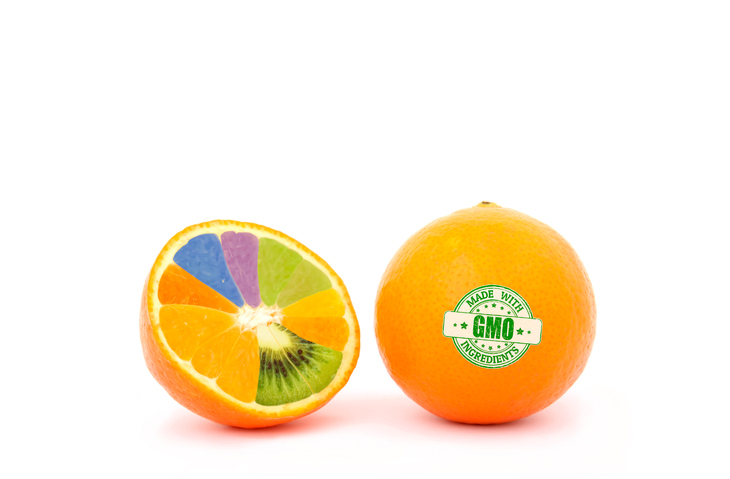Basking In Ignorance
"Any farm is completely artificial. Even with organic farms, you strip away all the native vegetation." "Organic farmers also have to use pesticides. Some of those can be especially harmful, even if they’re dug up from the earth."
"Most of us aren’t farmers…It’s so far out that people can’t really understand how important genetic improvement is to the livelihood and health of people."
"The poorest people, who most need the technology, may be denied access because of the vague fears and prejudices of those who have enough to eat."
"We must focus on how we can help children grow up healthy, we must ask if farmers in rural communities can thrive and if everyone can afford the food."
Pamela Ronald, plant geneticist, distinguished professor, University of California
"[People] envision that all of their food should come from a farm like their grandfather."
"They don’t connect the fact that if you were to grow food that [old] way, you couldn’t grow enough and it would be incredibly expensive."
"Breeders were trying to do something about it [severe European corn worm infestation that destroyed corn ears and kernel] and finally a solution came along. That solution [Bt, where an organic insect controller, bacillus thuringiensis (Bt) bacteria, is inserted into corn] still works."
"The technology works. It’s low cost and it uses fewer pesticides than before."
Terry Daynard, Farmer, Guelph, Ontario

"This result is perverse, but is consistent with previous research on the psychology of extremism." "Extreme views often stem from people feeling they understand complex topics better than they do."Published in Nature Human Behaviour, in a collaborative research study between researchers at the Leeds School of Business at the University of Colorado Boulder, Washington University in St. Louis, the University of Toronto and the University of Pennsylvania, over two thousand people in the United States and Europe were canvassed for their opinions about GM foods. The surveys queried respondents about how confident they felt about understanding genetically modified foods, and followed up by testing how much they actually knew, with a battery of true-false questions covering general science and genetics.
Phil Fernbach, lead author, professor of marketing, Leeds School of Business, University of Colorado
"Our findings suggest that changing peoples' minds first requires them to appreciate what they don't know."
"Without this first step, educational interventions might not work very well to bring people in line with the scientific consensus."
Nicholas Light, study co-author, Leeds School of Business PhD candidate
Over 90 percent were in opposition to the use of genetically modified foods, in stark contrast to the considered, scientific consensus of plant scientists, with close to 90 percent of that demographic believing that genetically modified organisms are completely safe and can be of great benefit to humankind. And then the other finding of the study was that those most opposed to genetically modified foods were strong in their belief that they were completely knowledgeable about the issue, even though they also happened to score lowest on actual tests of science knowledge.
The study was conducted in France, Germany and the United States, with equally similar results in all instances. This more or less ties in with the percentage of the public staunch in their belief that vaccines are dangerous to human health and well-being. This group of people, though smaller in number than the GMO adversaries, also labour under the delusion that they have superior knowledge than scientific experts in this area.

Dietary and vitamin supplements are casually accepted by many Americans for varied reasons, but their use is not necessarily linked to hard evidence of the consequences of their use. Most people who use supplements appear to be immune to any suggestions from dietary experts who contradict manufacturers' claims for superior health resulting from the use of the supplements. A quarter of those surveyed on this topic felt it reasonable to stop their use of supplements should experts prove them to be ineffective; the balance would not.
This phenomenon is considered to be in the realm of cognitive bias, related to the Dunning-Kruger effect which two psychologists, David Dunning and Justin Kruger outlined in their 1999 paper "Unskilled and Unaware of it". The reasons people who are most likely to appear to believe they know vastly more than they do is that their "incompetence robs them of the ability to realize it". In other words, a lack of knowledge renders them without the contextual skills required to recognize errors.
The Dunning-Kruger effect is credited as an explanation in part for why it is that efforts to educate the public tend all too often toward failure. Researchers in 2003 examined how communication strategies on GMOs -- with the intention to help the public understand that their beliefs failed to align with experts' opinions -- ended up backfiring; the results of all the efforts made consumers less likely to trust and accept GMO foods.
 |
Anti-GM protestors: not the hottest chillies in the bowl?
Credit: br-photo/getty images
|
Labels: Agriculture, Genetically Modified Foods, Human Nature, Research, Science

0 Comments:
Post a Comment
<< Home